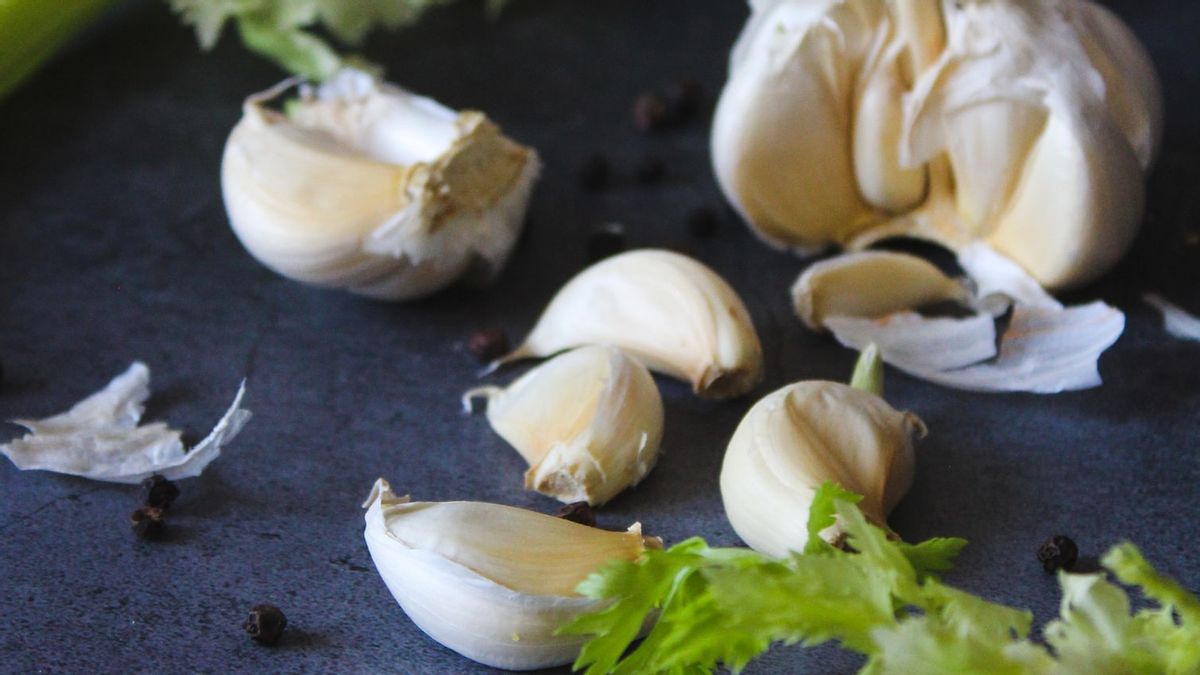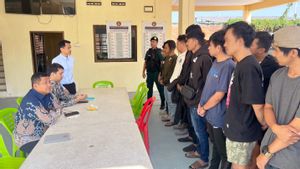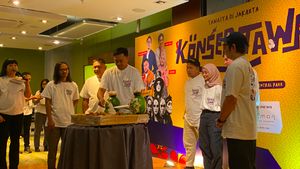JAKARTA - The reporting of 34 garlic import business actors by the Ministry of Agriculture (Kementan) to Commission IV DPR RI and the Police Food Task Force has been highlighted by many parties. The reporting carried out because these entrepreneurs import without pocketing the Horlikuktura Product Import Recommendation (RIPH) and adhering to the Trade Ministerial Regulation (Permendag) No.27 of 2020 is considered to show policy inconsistencies between ministries and sectoral egos at the expense of business actors.
Researcher of The Institute for Development of Economics and Finance (Indef) Rusli Abdullah said this not only shows the absence of cross-ministerial coordination on a single government policy. The insistence of the Ministry of Agriculture to report the entrepreneurs when the Agricultural Quarantine Agency (Barantan) itself permitted the import, is an odd thing that should be investigated.
Moreover, the Permendag is intended as a relaxation to speed up imports when needed, when the RIPH process is not running fast.
"There is indeed relaxation from the Ministry of Trade. Then, why is there a report to report, this shows there is no coordination," said Rusli in his statement, Friday, June 26.
Rusli admits that he understands that 34 importers imported garlic during the Import Approval Letter (SPI) exemption period or the import permit applied by the Ministry of Trade from 17 March to 31 May 2020. However, on the other hand, RIPH is still valid.
The import relaxation rules are contained in the Minister of Trade Regulation Number 27 of 2020 concerning Amendments to the Regulation of the Minister of Trade Number 44 of 2019. This regulation states that the import of onions and garlic is exempted from the Import Approval and Surveyor Report (LS).
However, this policy will be implemented temporarily, namely until May 31, 2020. Trade Minister Agus Suparmanto said this policy is a follow-up to the President's directive for the availability and maintenance of prices for basic goods and foodstuffs, including garlic and onions, whose prices skyrocketed some time ago.
According to Rusli, this case is like rice has turned into porridge. The reason is, garlic has entered the country amid the COVID-19 outbreak. For that, the Ministry of Agriculture needs to check the onions that have entered the market.
"In my opinion, the Ministry of Agriculture and related parties (the Quarantine Agency) took garlic samples from the 34 importers, check the quality whether it meets the RIPH health requirements? If someone violates the quality and safety standards, give sanctions. It does not mean that without RIPH, you can import onions. with poor quality, or poor quality, "he said.
Responding to the report, the Chairperson of Pusbarindo Valentino in his press release said that in March 2020 Pusbarindo had warned that the exemption of SPI and LS for importing garlic was potentially prone to abuse.
"We have reminded us that relaxation clearly undermines the spirit of compulsory planting for business actors (importers) who are obedient and obedient to laws and laws. And it turns out that our worries have occurred," he said.
Valentino asked the Quarantine Agency and the Directorate General of Horticulture which are under one roof, namely the Ministry of Agriculture, to be united and have one attitude. If there is a violation, he continued, the onion product must be detained and cannot be released or circulated.
"If the attitude of the Directorate General of Horticulture is consistent with the mandate of Law No. 20/2010, namely ensuring food security for all Indonesian people for imported food products. Barantan should not hesitate to act decisively in accordance with the rules and laws on food products that are not equipped with official documents," he said.
He regretted that imported garlic without the RIPH document also means that it has also escaped the mandatory planting obligation in accordance with the provisions of MOA No.39 and MOA 46/2019. The impact of this law violation, continued Valentino, is clear that business competition has occurred among business actors. legally disabled.
Danger of Kalai Not CompactA similar sentiment was expressed by DPR Commission IV member Firman Subagyo. He considered that imports to meet national needs are normal. For this reason, he said, every import must obtain a recommendation permit from the Ministry of Agriculture.
When a permit is issued and it does not heed or does not comply with statutory regulations, it means that there is a deviation. At the same time, he considered that there was a clear lack of cohesiveness from the policy.
"If I see this problem, a strong communication must be built between the Ministry of Trade and the Ministry of Agriculture that the law is made to be implemented, not to be violated. If the government is not united, it is dangerous," he said.
Firman said, if a business actor violates, then the violation must also be confirmed by law enforcers.
"They do it according to the requirements and procedures. This must be clear. Except for these 34 business actors who violate and commit collusion, bribe or bribe," he said.
The English, Chinese, Japanese, Arabic, and French versions are automatically generated by the AI. So there may still be inaccuracies in translating, please always see Indonesian as our main language. (system supported by DigitalSiber.id)









